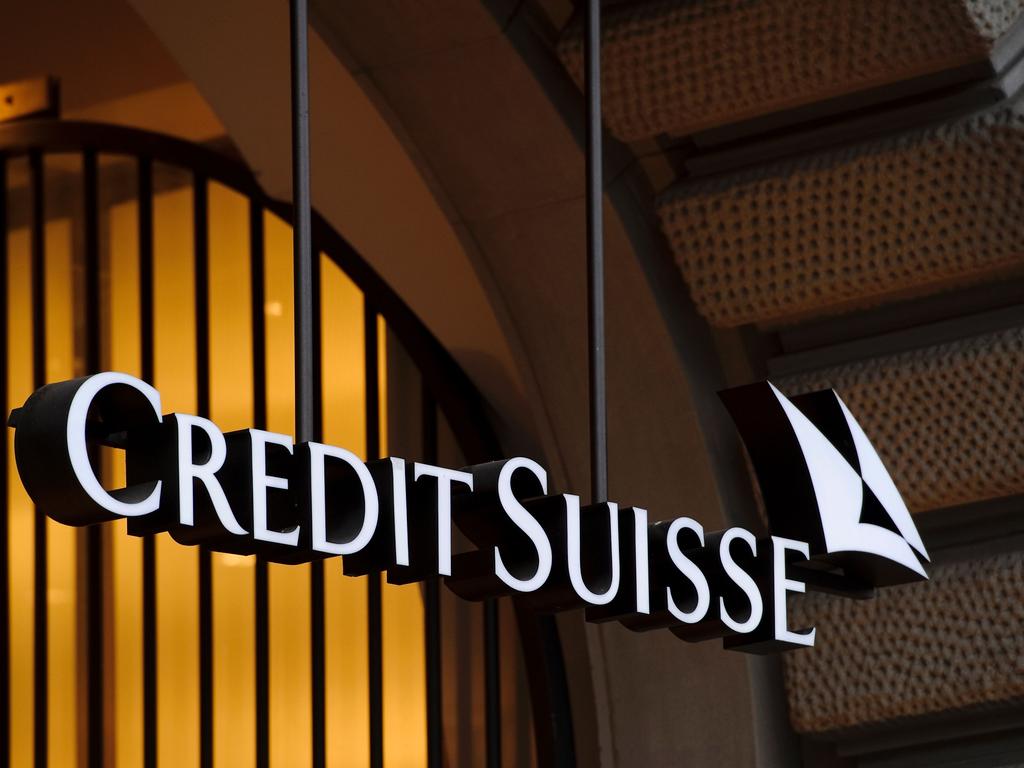What is Archegos and how did it rattle the stock market?
Bill Hwang’s investment firm had $US30 billion in bets on major stocks that unravelled last week.

Investor Bill Hwang set off a storm in the stock market last week when his firm, Archegos Capital Management, and its banks, began liquidating huge positions in blue-chip companies, according to people familiar with the transactions. The sales sent individual stocks swooning and have left at least two banks with major damage.
What is Archegos Capital?
Archegos is the family investment vehicle owned by Mr Hwang, a former protégé of hedge-fund titan Julian Robertson. Mr Hwang was a so-called Tiger cub, an offshoot of Mr Robertson’s Tiger Global Management. Mr Hwang founded Tiger Asia in 2001. Based in New York, it went on to become one of the biggest Asia-focused hedge funds, running more than $US5bn at its peak. In 2008, it was one of a swath of funds that suffered losses related to the soaring share price of Volkswagen of Germany
In 2012, Tiger Asia said it planned to hand money back to investors. Later that year, the firm pleaded guilty to a criminal fraud charge for using inside information from investment banks to profit on securities trades. Mr Hwang and Tiger Asia paid $US44 million to settle a related civil lawsuit, The Wall Street Journal reported at the time.
Mr Hwang turned Tiger Asia into his family office and renamed it Archegos, according to its website.
Mr Hwang and Archegos’s co-chief executive, Andy Mills, didn’t respond to requests for comment.
What did Archegos invest in?
Archegos describes itself as focused on public stocks in the US, China, Japan, South Korea and Europe. In recent months, traders say, it played a part in the strong rally — and subsequent fall — in shares of ViacomCBS, Discovery, Farfetch and New York-listed Chinese tutoring company GSX Techedu, Tencent Music Entertainment Group, Baidu and IQIYI.
What are swaps and why did Archegos use them?
Archegos took big, concentrated positions in companies and held some positions via something called “total return swaps.” Those are contracts brokered by Wall Street banks that allow a user to take on the profits and losses of a portfolio of stocks or other assets in exchange for a fee.
Swaps allow investors to take huge positions while posting limited funds upfront, in essence borrowing from the bank. The use of swaps allowed Mr Hwang to maintain his anonymity, even as Archegos was estimated to have had exposure to the economics of more than 10 per cent of multiple companies’ shares. Investors holding more than 10 per cent of a company’s securities are deemed to be company insiders and are subject to additional regulations around disclosures and profits.
Swaps are common and have been around for a long time. They are also controversial. Long Term Capital Management, a hedge fund advised by two Nobel laureates that nearly brought down Wall Street in the late 1990s, used swaps. Warren Buffett wrote about the risks of swaps in his 2003 letter to investors.
How did leverage play a role?
Swaps can amplify the size of an investment in a stock by allowing the investor to put up only limited funds upfront. When the underlying investments went the wrong way, the banks sold the shares they held on behalf of the investor. This selling reinforces the drop in the shares, which helps explain why the stocks that Archegos had invested in fell so sharply.

What prompted the sell-off?
Mr Hwang’s strategy began backfiring in recent weeks, as the stock price of companies in which Archegos had significant exposure, including China internet-search giant Baidu and Farfetch, began to sell off. Baidu’s stock price rose sharply in February, but by mid-March its shares had dropped more than 20 per cent from its highs.
ViacomCBS on March 22 announced a sale of common stock, which put further stress on Archegos, said people familiar with the matter, with news of the deal sparking a slide in the shares and adding to Archegos’s mounting losses. The fund by that time had started selling some of its position in ViacomCBS to try to offset losses, adding to pressure on the stock.
But once the stock prices started to fall, Archegos’s banks started selling huge chunks of shares in the market in what are known as block trades.
What is a block trade?
A block trade is the sale of a huge chunk of a company’s shares. These trades are often done at a discount to the current share price because it is harder to find a buyer for a large quantity of something than for a tiny piece.
What is a prime broker?
A prime broker is the part of a Wall Street bank that services hedge funds. Prime brokers help hedge funds make trades and lend them capital in the form of margin lending. Archegos used at least half a dozen prime brokers, including Credit Suisse, UBS Group, Goldman Sachs, Morgan Stanley, Deutsche Bank and Nomura Holdings.
Who got hurt from Archegos?
Credit Suisse and Nomura have warned investors that significant losses could be in store. Deutsche Bank said it has sold off its exposure and will emerge unscathed.
How do you pronounce ‘Archegos’?
The name comes from the Ancient Greek word for leader. In Greek, the word is pronounced “Ar-Khee-Gos” or “Ar-Khay-Gos.” It was used in the New Testament in reference to Jesus. Mr Hwang is a devout Christian.
The Wall Street Journal




To join the conversation, please log in. Don't have an account? Register
Join the conversation, you are commenting as Logout